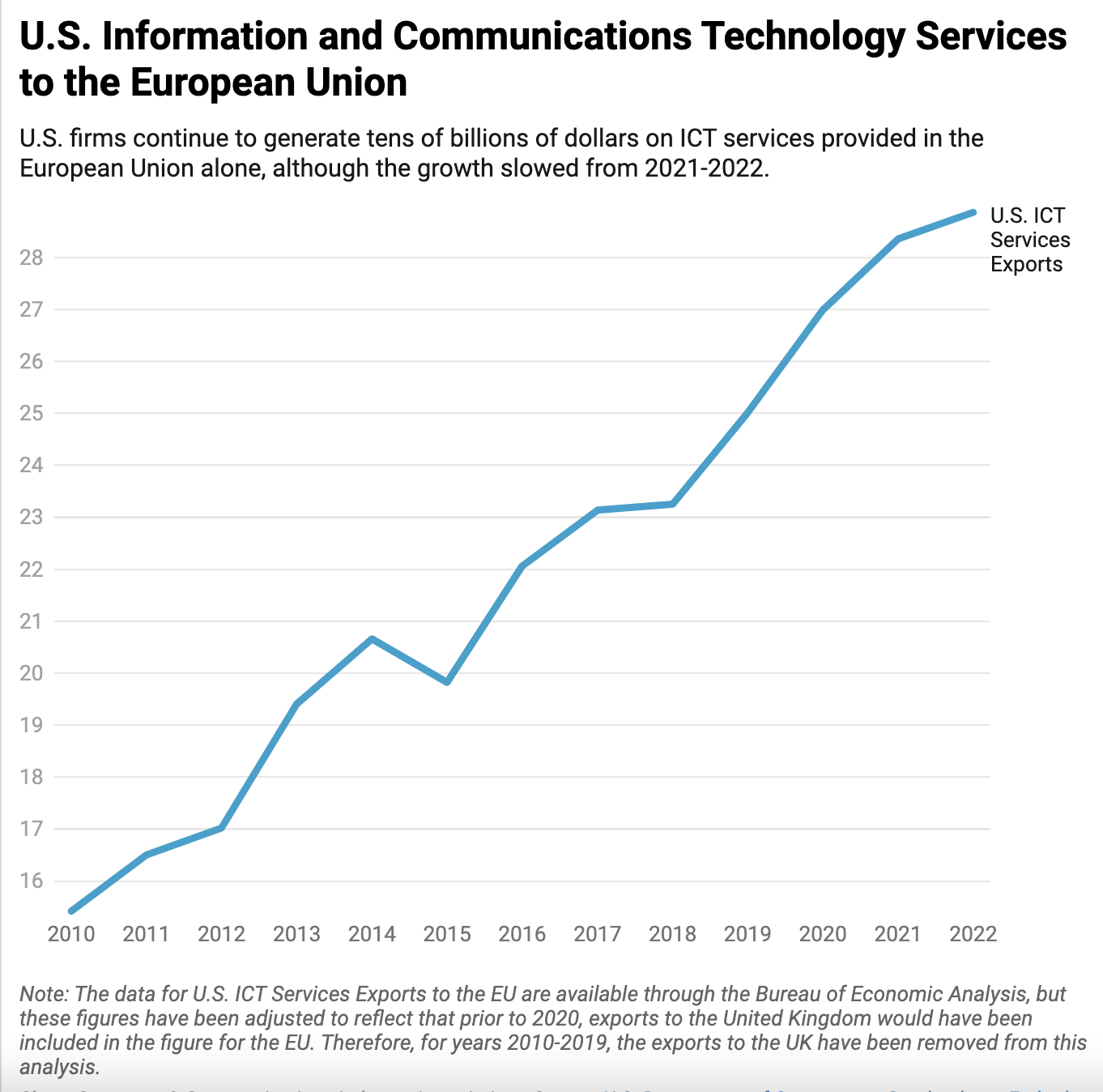Senators Should Avoid Making the Digital Economy More European
With the Senate Judiciary Committee set to markup S. 2992, the American Innovation and Choice Online Act (AICOA), this week, it’s worth taking a closer look at the bill’s European origins, and how it would harm U.S. consumers, small businesses, and the U.S.’ global technological leadership.
The EU’s Digital Ambitions
After years of calls from European leaders to introduce more industrial policy into competition enforcement, to promote the creation of national champions, and to assert European “digital sovereignty” (i.e. protectionism and increased barriers to trade), the European Commission introduced the Digital Markets Act (DMA) in December of 2020. The legislation is designed to create “contestability” for European digital rivals, and “fairness” for European business users of platform services, by imposing a series of obligations on companies designated as “gatekeepers”.
European lawmakers have been quite explicit in their desire to target only U.S. platforms with the law’s obligations. These one-size-fits-all obligations are designed to make the designated “gatekeepers” less competitive, to open up their technology and infrastructure to rivals (sometimes for free), to share user data, and to redesign their products and services in ways that will make it easier for European businesses to compete. The DMA would prohibit a range of behaviour that is known to be pro-competitive and to create value for platform users, effectively giving rivals a leg-up competitively at gatekeepers’ expense. The allegedly pro-competitive effects of the DMA are built on questionable assumptions, at best.
As a digital laggard the EU has incentive to target successful U.S. online platforms
Source: UNCTAD Digital Economy Report 2019, available here, pg. 19
This of course comes on top of other EU moves to weaken U.S. tech leadership, including digital taxes, more aggressive enforcement of the EU’s General Data Protection Regulation, increased national antitrust enforcement, and overlapping national ex ante regulation of platforms. It appears that European enforcers have taken French Commissioner Thierry Breton’s words to heart, “the European Commission is deploying its entire industrial toolbox. But that is not enough. We must also equip ourselves with a regulatory arsenal that helps turn our industrial ambition into reality.” It’s no wonder that European leaders call the US uptake of similar digital regulation, a “dream come true”.
Will the U.S. Blindly Follow?
While the EU tries to use its regulatory muscle to achieve its digital industrial ambitions, U.S. lawmakers should avoid facilitating alliance building that comes at the expense of U.S. technological leadership, innovation, and vigorous competition. And yet, the AICOA largely copies the DMA, with its concept of “covered platforms”, and its prohibitions on pro-competitive platform conduct like service integration, data-based competition, and the use of proprietary technologies.
U.S. technological leadership is due to a number of factors, including the U.S.’ ability and willingness to attract global talent, U.S. investors’ appetite for financial investment in new and often risky ventures, and antitrust rules that protect competition, not competitors. But adopting the AICOA would jeopardize that. The AICOA has not been subject to a hearing, or expert input, on its likely effects on the U.S. economy, nor what all the mandated “openness” would mean for national security.
Instead of blindly following the European approach to making U.S. tech platforms weaker, U.S. lawmakers have an opportunity to submit these proposals to the scrutiny of objective and evidence-based analysis. What they’ll find is that the AICOA, and other similar bills, are likely to do more harm than good. The future of the digital economy would be better served if lawmakers continue to focus on encouraging vigorous competition between firms, in the interest of consumers.









